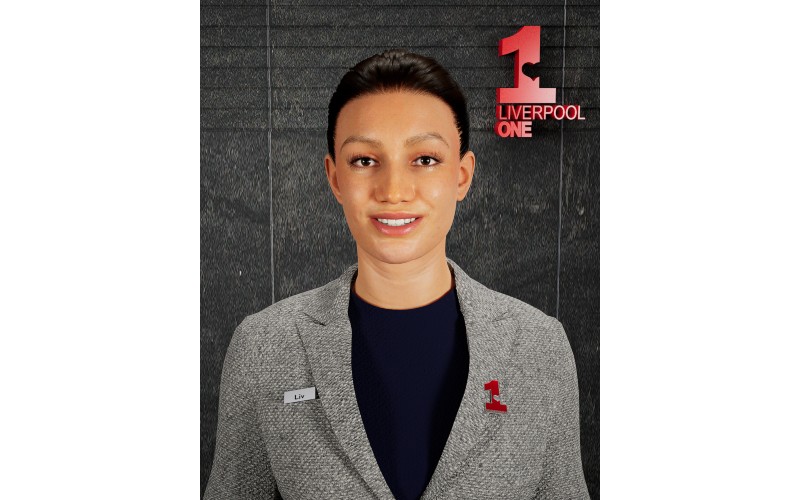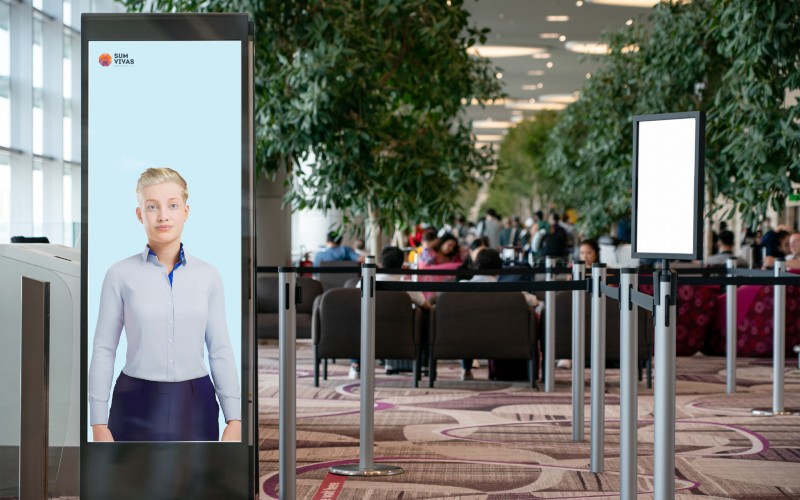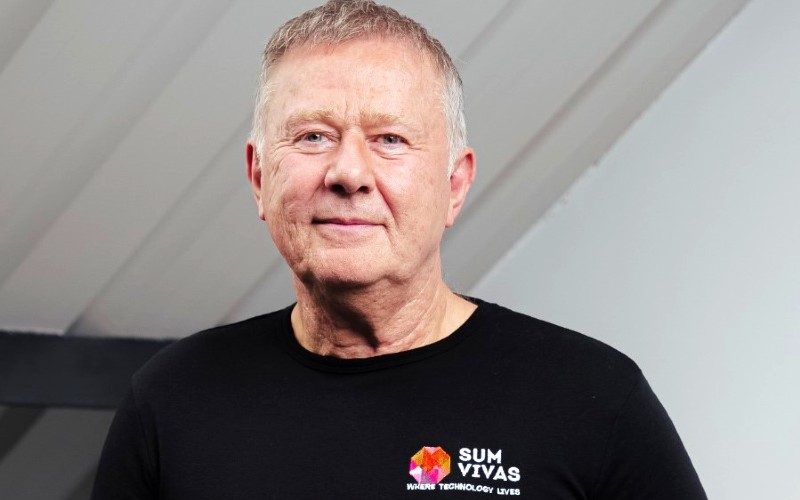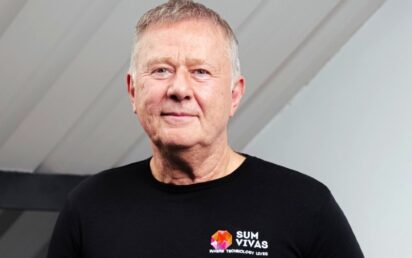When breaking new ground in technology, the possibilities seem endless – probably because they are.
Rob Sims is at the forefront of ‘digital humans’ with Liverpool startup Sum Vivas and can see the potential to transform a multitude of sectors with its AI avatars.
However Sims, an experienced operator, is acutely aware of the importance of serving a business need with this shiny new tech – and that means focus.
“The biggest challenge we’ve faced is that there isn’t a blueprint for what we’re doing,” he tells BusinessCloud. “Digital humans have the opportunity to touch every sector.
“The underlying technology can cover a whole range of different markets. However, each of those has its own nuances and its own requirements.”
Despite beginnings as a digital DJ named Dex, the business case for Sum Vivas’s AI-integrated digital humans in the near-term is to deliver efficient customer service in high-footfall areas.
“We’ve taken it from that [wide potential] to focus on a single approach as a customer service-driven application and build expertise there,” Sims explains.
“In that way, we’ve got a very different approach to the market to a lot of our competitors.”
For example, it is supporting the guest services team at Liverpool ONE – one of the UK’s premier retail and entertainment destinations, with 22 million visitors annually – via digital assistant ‘Liv’, capable of providing directions, store information and answering frequently asked questions.

Liv is engineered with natural language processing and machine learning capabilities, enabling her to understand and respond to a wide range of queries in real-time. The deployment will also gather valuable insights and collect data into visitor preferences and needs, allowing for continuous improvement in service delivery.
“[For now] we’re very much focused on shopping complexes, airports, arenas – anywhere where you have a large number of visitors that potentially don’t know what they’re doing or where they’re going,” says Sims.
“For example, if you’re a Spanish-speaking visitor to Liverpool and you’ve just got off the cruise ferry, you might ask: ‘I’ve got three hours here – tell me the best three things to do and where to go for them’. The avatar will then respond in Spanish, and the person goes on their way.”
The inclusion of visual prompts – with the text displayed in the same language – helps with accessibility.
“Our core sectors in the long-term will be customer service, education, health and welfare, and performance,” continues Sims.
“We’ve decided that whilst we have capability and the ability to serve all of those areas, we don’t have the scale within the business to approach all of those sectors at the moment.”
A former CEO at Nexus Telecommunications and Elite Group, Sims has more than 25 years of experience in IT and technology, both from a UK and international perspective.
“I’ve always balanced an entrepreneurial approach with a corporate framework,” he says. “Technology without a purpose is just that – it serves no purpose… we approach things from the customer’s perspective.
“I guess I would describe myself as a proposition builder. My skill is taking a technical build and turning it into something that businesses understand, and can see how it benefits them.”
Sims founded Sum Vivas, ninth in our MediaTech 50 ranking this year, with Denise Harris in 2022. He previously served as a non-executive director of festival and concert business Disco Classical, owned and operated by Harris.
MediaTech 50 – UK’s most innovative media tech creators for 2024
“It’s been a rewarding challenge because through a sister company, we’ve been our own customer as well as the supplier,” says Sims.
“We needed to produce an integrated digital human and we couldn’t find someone that would do it in the way and the style that we needed, or could support us from a user perspective. Equally importantly, some of the solutions out there were eye-wateringly expensive.
“So we did the old: ‘Well, if you can’t buy it… we’re intelligent people, we can pull together a strong team and do it ourselves.’ Which is exactly what we did.”
Its solution is a combination of hardware and software, which cements the business model.
“We build the servers into kiosks, which is where the interface and the comms sit – and the brain and the control and the security mechanisms are all stored in [Microsoft cloud platform] Azure. So we’ve got a hybrid physical/cloud-based application,” explains Sims.
“The cloud element allows us to manage, control, scale and deploy at speed; the physical element ensures the quality of a conversation with an avatar that’s responding in real-time.
“Our model is twofold: we’ve got professional services – the design, the build and the deployment side, a one-off payment model; and we’ve got a licence fee SaaS model for the use of the avatars, which builds our ongoing, recurring revenue. That way, we’ve got a sustainable business model.”

By building everything in-house, Sum Vivas has the ability to scale and enter new markets – when the time is right.
“We have the potential to expand both in the UK and internationally, but we don’t want to spread ourselves too thinly,” reiterates Sims.
“We don’t want to end up failing because we don’t deliver solutions in the way that we want. It comes back to this differentiator and this underpinning of the business: yes, we’re a technology business and we’re dealing in some front-end tech, but ultimately we’re a customer service business.
“We want to deliver the right products at the right time in the right way – and ensure they are sustainable for our customers.
“When I speak to technical people about what we do, they want to discuss the endless possibilities of the tech… of course, you could infinitely add and improve things. But that would stop it being a commercially viable proposition, and drift away from the customer brief.
“Everything is possible, technically – but can you do it in a commercial way? Can you do it at the right time? And can you do it where there’s an audience?
“I think that’s how we’re approaching business differently to a traditional tech company.”
Sum Vivas recently won a mentoring session from Dragons’ Den star Steven Bartlett and further support from freelance platform Fiverr.
“We’ve got a very robust pipeline of potential clients: everything now seems to be coming to fruition, and we need to ensure we can scale and support that,” concludes Sims. “We’re being realistic and sensible in terms of our aspirations, whilst at the same time being very aware of the overall opportunity and, where appropriate, look at ways to capture that growth opportunity.
“We’re now at the point of the business’s evolution where we are talking to a number of people about investment to support our accelerated growth.”


